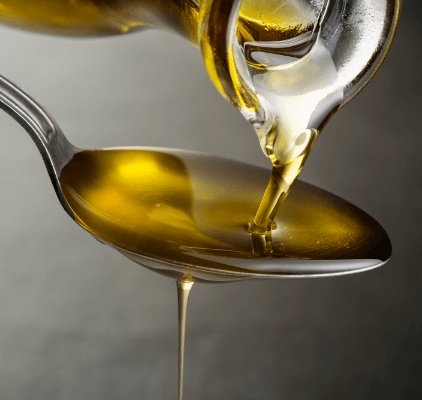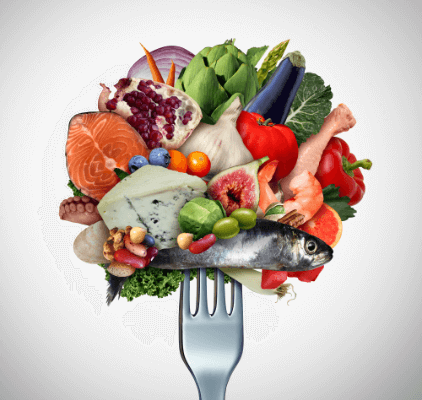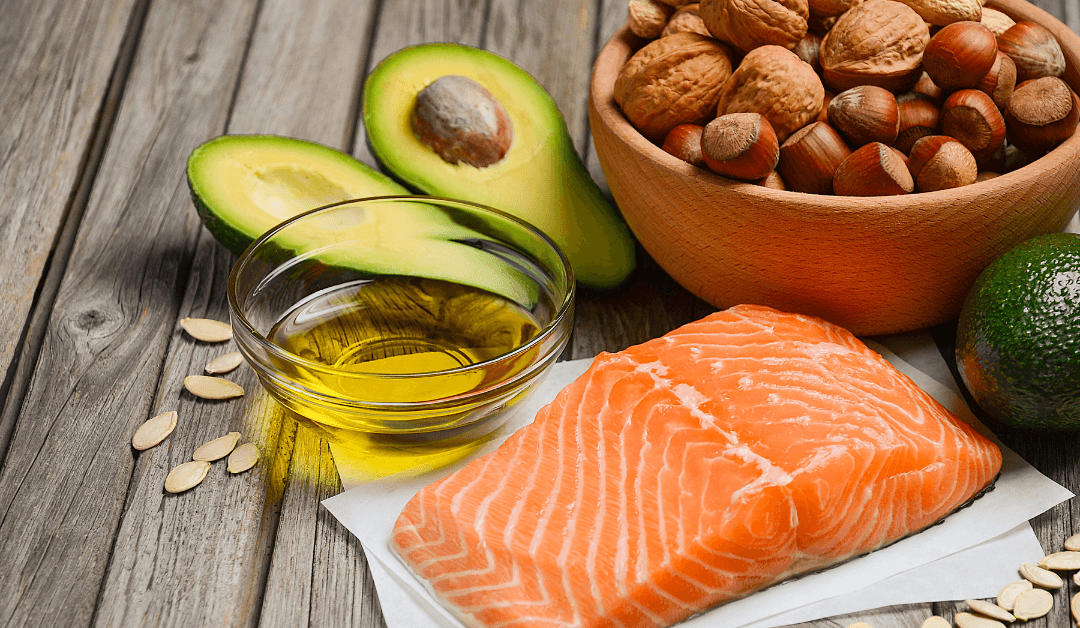Fats are just as essential for our bodies as carbohydrates and proteins. They play an important role in chemical processes, become a part of complex molecules and are an alternative source of energy.
The term “fat” means a lot of different things, though. Which fats are healthy and which harm our bodies? What’s all this about omega-3 and omega-6 fatty acids? And which foods contain what?
Healthy fats
“Fatty acids” is a term used to describe fats for humans and animals. There are unsaturated fatty acids and saturated fatty acids and we need both in healthy amounts. You may have heard that you should avoid unsaturated fat, but this advice is an oversimplification.
Fat is a great flavour enhancer, a cheap additive and lengthens shelflife, which is why processed foods contain far too much of unsaturated fats. As long as we consume our fat intake mostly through natural foods, we don’t have to worry about unsaturated fats. They naturally occur in dairy products, for example.
Essential fatty acids
As the name implies, essential fatty acids are essential, meaning our bodies cannot synthesize them so we need to take them in through our food. Humans need to eat two essential fatty acids: omega-3 and omega-6 fatty acids.
Both are building blocks for chemical compounds our bodies need to function. We can even use them to create our own vitamins.

Omega-6 fatty acids are very common in food sources. You find them in walnuts, seeds (sunflower, pumpkin, hemp), cooking oils, tofu, but also processed foods.
In balance

We need similar amounts of both Omega-6 and 3 fatty acids. When we eat too much of one but not the other, we experience side effects, like dry skin or brain fog.
This is especially important if you increase your fat intake on high-fat diets like keto or the mediterranean diet. These diets include foods higher in omega-6 fatty acids which means you need to balance them out with foods high in omega-3 fatty acids.
Foods rich in omega-3 include fish, fish cod oil, walnuts, avocados, and algae. If you are a vegan, you can also buy omega-3 supplements extracted from algae. I used them during my first months of keto to avoid dry skin.
Fat doesn’t actually make you fat
And finally, let’s bust the biggest lie: Fat does not actually make you fat. The food we eat is taken apart. Our bodies take what they need to produce energy and build new molecules that make up all the different cells we have.
When we eat too much of something we do not need, our bodies handle this too. When we eat too many carbs, they are directed to liver who turns them into fat because the glucose metabolism is our default and not built to handle excessive carbohydrates.
Not so with fat. When we eat too fatty food, our bodies simply discard it. You can easily see this for yourself because your poop floats. Fat is not the enemy. It keeps us healthy, is essential for our well-being and can even help us lose weight. Time to invite healthy fats back to the table.
The Dodo Munches cannot and does not contain medical/health advice. The information is provided for general informational and educational purposes only and is not a substitute for professional advice. Please read the full disclaimer here.

